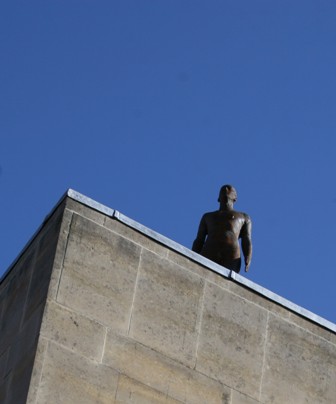
Arts funding: first find your philanthropist
Edition number 43; dateline 4 July 2011
What every plutocrat knows about art
As edition 43 of The Leisure Review was going to press advance details of Jeremy Hunt’s latest thoughts on funding for the arts were being made available to certain members of the fourth estate. It seems that Secretary Hunt is to make good his plans for philanthropy to become one of the key strands of government arts policy. An endowment fund totalling some £55 million is apparently to be created and these funds made available to match private investment. The funding will be contributed by the Arts Council and the Heritage Lottery Fund, and up to £5 million of public money will be shovelled out per scheme. Michael Portillo is to serve as the chair of this enterprise and Secretary Hunt was said to be clear about the long-term nature of this project, with positive benefits not necessarily expected for 20 or even 50 years.
Philanthropy is apparently is the answer. While we suppress the suspicion that philanthropic investors will expect to see the benefits to themselves of their largesse rather sooner than 50 years hence, we must give full marks to the government for preparing to take a long-term approach (short-termism being the blight of elected government). However, other announcements on the same day – Lee Hall having his collaborative opera project, Beached, cancelled (perhaps ‘beached’) and Nicholas Kent standing down as director of the acclaimed Tricyle Theatre in London – served only to illustrate some the many difficult issues faced by the arts and underlined the questions regarding the merits and efficacy of philanthropy.
Lee Hall revealed that his collaboration with Opera North and the people of Bridlington had been shelved (surely ‘beached’) after he had been asked to remove a reference to one of the lead character’s sexuality. Having declined to amend a simple and, he no doubt assumed, inoffensive piece of dialogue between two adult characters, Hall was informed that the 300 primary school pupils that had been working on the development of the work for many months would not be able to take part. Nick Kent, one of the UK’s most respected artistic directors, has run the Tricycle Theatre in Kilburn since 1984 but has chosen to stand down in March 2012, citing government funding as the reason for his decision. His frustration at the theatre having its budget cut by £350,000 means that he feels that only the enthusiasm of a new director could cope with the challenges ahead. “I think the Tories would have cut the arts even without the banking crisis because they believe in philanthropy, which is completely wrongheaded,” he said.
Kent may be right – he may not be – but it is unlikely that anyone would ever be tempted to suggest that the world of arts funding was anything other than highly complex. Kent’s situation has served to illustrate several issues. First, that comparatively small sums in the context of government spending can make a huge difference. Second, that reputation and perceptions of quality do not always equate to financial security. Third, that art and artists are political, bringing challenge and the whiff of potential danger at every turn. Lee Hall’s shelved libretto serves to illustrate this final point rather well and serves to reiterate some of the problematic issues regarding philanthropy in the arts, not least that philanthropists get to choose what they wish to fund and only tend to fund what they want to see. Genuine artistic philanthropy, which might be defined as funding artistic processes in which you have no particular interest, is a rare beast indeed and reliance on philanthropy is inherently iniquitous, insofar as only the wealthy get to decide what gets funded.
However, private investment in public funding has been the lingua franca of national government for 30 years at least; it is the current in which we swim and governments like philanthropy whatever its impact and whether or not it actually achieves the stated aims. They like it because it is not seen as public money, it brings deniability when art projects create unwelcome headlines, and those wealthy enough to be philanthropists are, almost without exception, part of the establishment and therefore sufficiently “one of us” to be trusted in their judgement of what constitutes acceptable artistic endeavour. And besides, it worked for Sportsmatch.
Philanthropy is plutocracy in action, conceived and enacted by governments made up of the wealthy who think that wealth is the simple answer to every problem. At an individual level one imagines it probably is but at a national level one has to hope that there is a little more to government than that. Will Secretary Hunt and his cabinet colleagues trouble themselves to ponder the inherent contradiction of public-minded philanthropy requiring a publicly funded bribe to make it attractive? Best not to think about it and put your faith in wealth and those who are able to dispose of it.
Jonathan Ives
Editor
letter from the editor
The Leisure Review editorial
